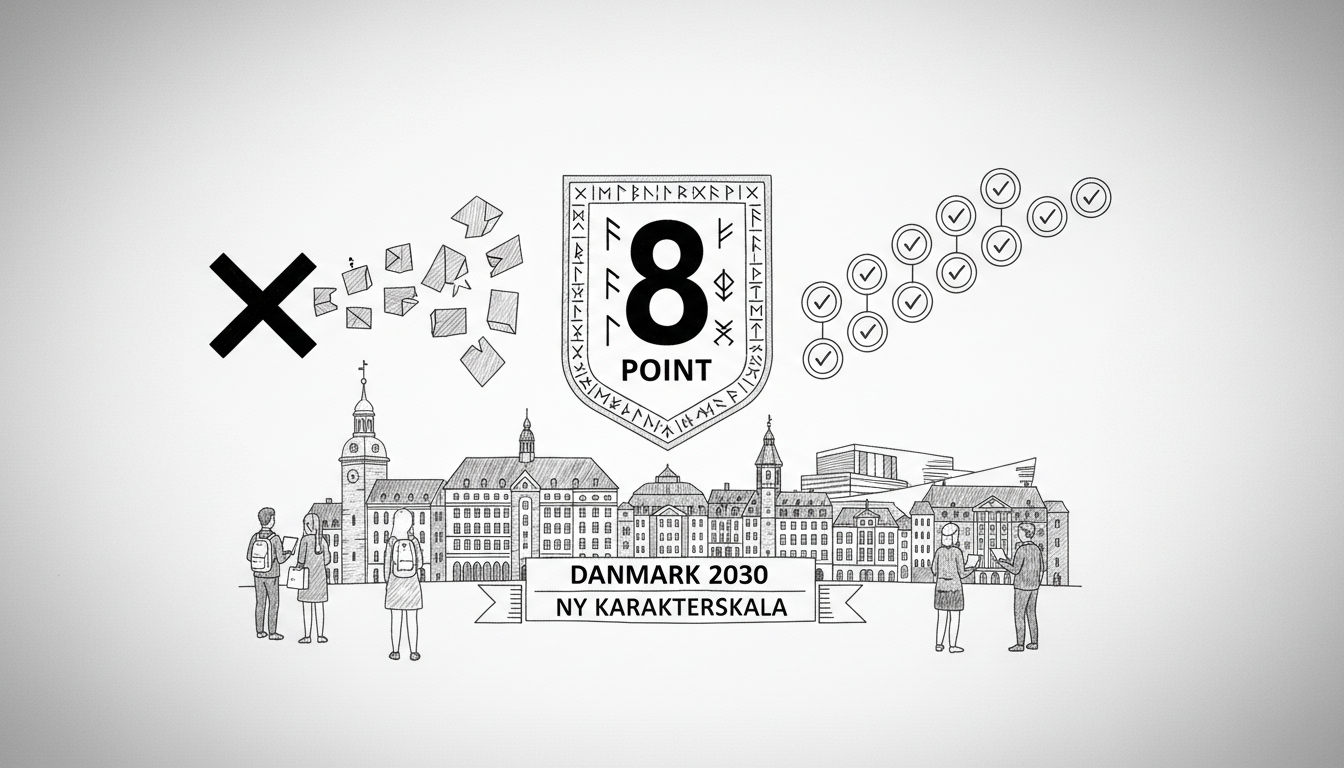The Danish government plans to overhaul the country's educational grading system by introducing a new eight-point scale. This major reform would eliminate the controversial negative grade -3 and reintroduce intermediate scores to provide more nuanced evaluation of student performance.
Under the proposed system, students would receive grades of 00, 01, 02, 4, 6, 8, 10 and 12. The current seven-point scale has faced persistent criticism for its large gaps between middle-range grades, particularly the jump from 4 to 7 and then to 10. Education experts argue these dramatic jumps make it difficult for students to see incremental progress and disproportionately affect learners from disadvantaged backgrounds.
The reform would completely remove the grade 7 while bringing back grades 6 and 8 to create smoother transitions between achievement levels. At the bottom of the scale, the government aims to abolish the -3 grade, meaning no student would receive a negative evaluation on their transcript. However, students would still need to achieve at least 02 to pass assignments, with 00 and 01 representing the new failing grades.
For exceptional performance, the government proposes a special recognition system. Instead of reintroducing the pre-2006 grade 13, top students would receive a 12 with a star. This symbolic recognition acknowledges extraordinary achievement but won't factor into grade point averages, addressing concerns about international comparability that plagued the old 13-grade system.
The current grading scale was introduced in 2006 with the intention of making Danish grades more internationally comparable. But research has shown the system's focus on penalizing mistakes has contributed to perfectionism culture in schools. The large gaps between middle grades particularly disadvantage students who struggle with motivation, as small improvements don't always translate to better grades.
Education Minister Mattias Tesfaye has acknowledged the current system contains several structural problems that need addressing. An expert group first highlighted these issues back in 2020, noting that the grading scale's design made it challenging for students to move between adjacent grade levels.
The proposed timeline would see the new system implemented in Danish youth education programs when students return from summer vacation in 2030. The following year, the eight-point scale would expand to primary schools and higher education institutions. This extended implementation period accounts for the need to develop new IT systems across educational institutions.
Business organizations have supported changing the grading system, noting that grades alone have substantial impact on young people's future opportunities. The reform represents one of the most significant changes to Danish education evaluation in nearly two decades.
The government's approach shows careful consideration of both educational psychology and practical implementation challenges. By eliminating negative grades while maintaining clear passing standards, the system aims to reduce student stress while preserving academic rigor. The star recognition for exceptional work provides motivation without creating international comparability issues that complicated the old 13-grade system.
